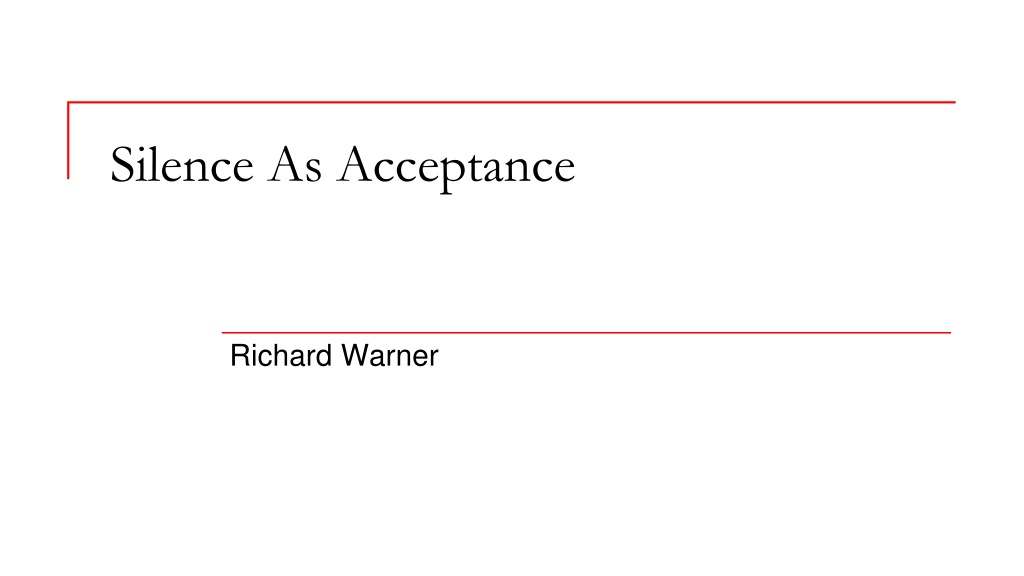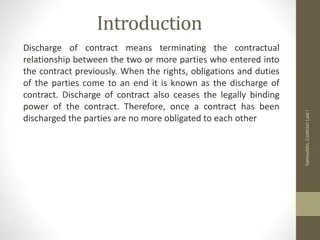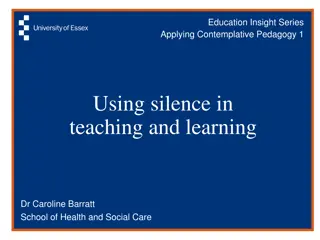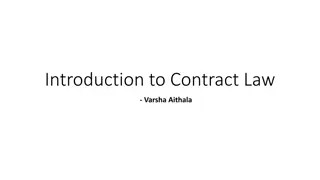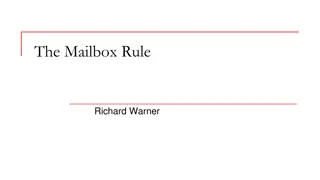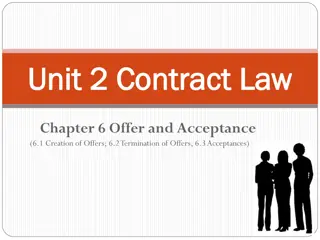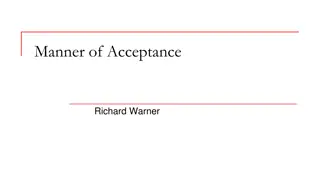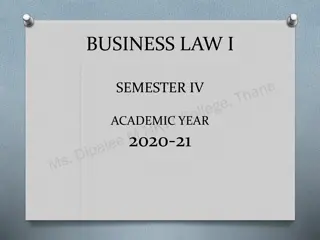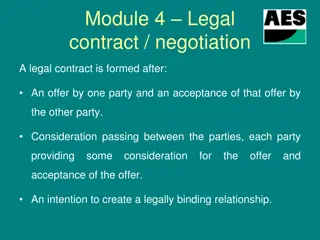Understanding Silence as Acceptance in Contract Law
Explore the concept of silence as acceptance in contract law through real cases like Cole-McIntyre-Norfleet Co. v. Holloway and Day v. Caton. Learn how silence can sometimes be legally interpreted as acceptance in certain circumstances, leading to implications for contract formation and legal actions.
Download Presentation

Please find below an Image/Link to download the presentation.
The content on the website is provided AS IS for your information and personal use only. It may not be sold, licensed, or shared on other websites without obtaining consent from the author. Download presentation by click this link. If you encounter any issues during the download, it is possible that the publisher has removed the file from their server.
E N D
Presentation Transcript
Silence As Acceptance Richard Warner
Silence As Acceptance A traditional doctrine with possible relevance to online contracting.
Cole-McIntyre-Norfleet Co. v. Holloway Normally, silence--not responding to the offer--is not acceptance. But there are cases in which silence is acceptance. In Holloway, a salesman places an order with a firm. The order is an offer to buy; The firm refuses to fill the order on the ground that they never accepted the offer. Did the firm say, "We accept"? No. Did they rely on the offer? No. What did they do? They were silent.
Was Their Silence An Acceptance? Yes, given the facts of the case. There was a regular pattern of placing orders that were then filled. The person placing the order--the offeror-- relied on this pattern, e. g. by not ordering goods elsewhere. In cases where there has been such a prior course of dealing, the court holds that you don't need an explicit acceptance; if you don't want to accept the order, you have to speak up.
Explicit Consent Not Required Note, this is a case in which contract formation does not require explicit consent.
Day v. Caton Day builds a brick wall between his lot and his neighbor's. The court holds that if: (1) Day built the wall in the expectation that Caton would pay for half of it, (2) Caton had reason to know that Day had this expectation, and (3) allowed him to build without voicing any objection, (4) uses the wall himself to his own benefit; Then: (5) the court can imply a promise to pay for part of the wall. So, acceptance by silence.
Tort Versus Breach Of Contract Day can sue for breach of contract since the court implies an offer and acceptance. Alternatively, couldn't Day sue in restitution--a tort suit--for the reasonable value of the benefit conferred? Yes. The recovery in each case would be the same.
